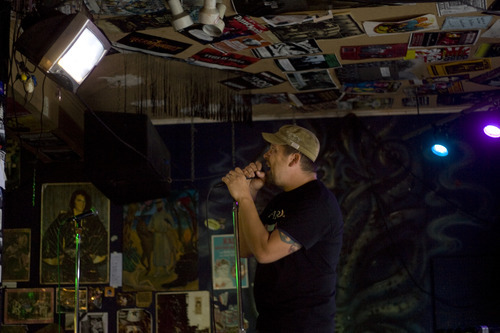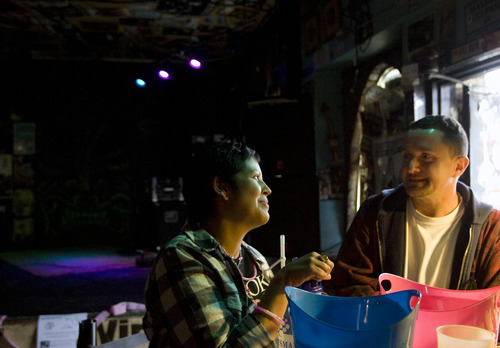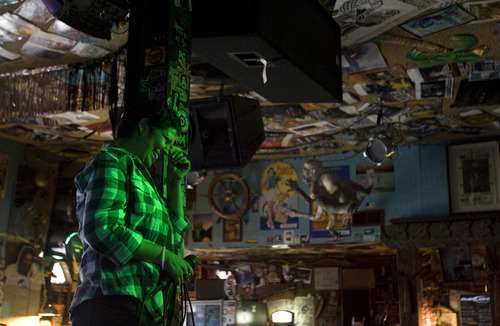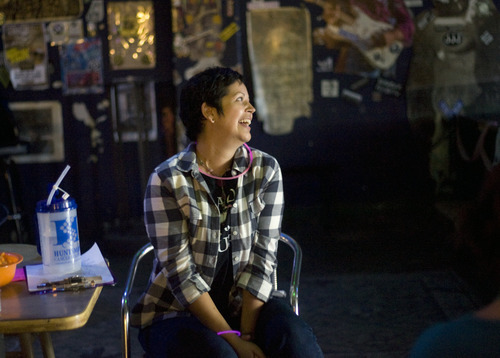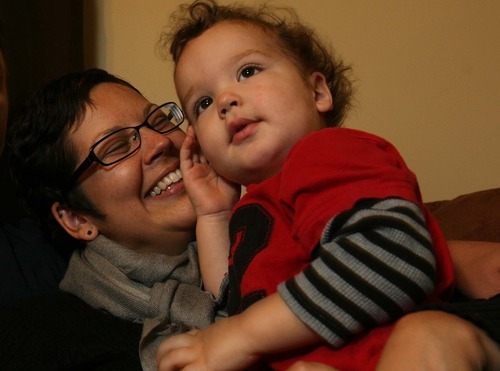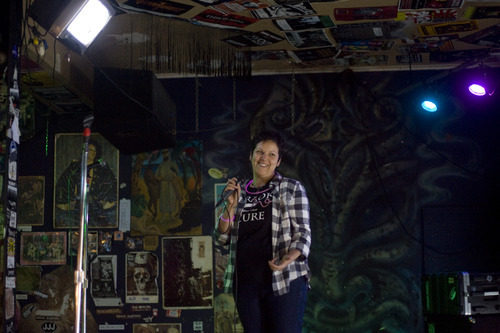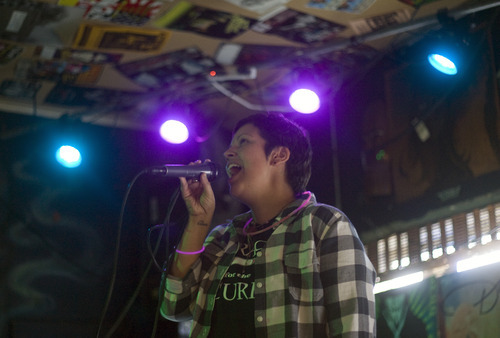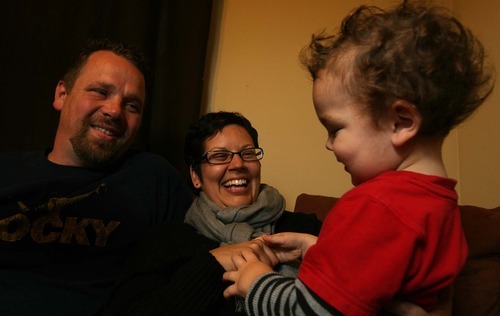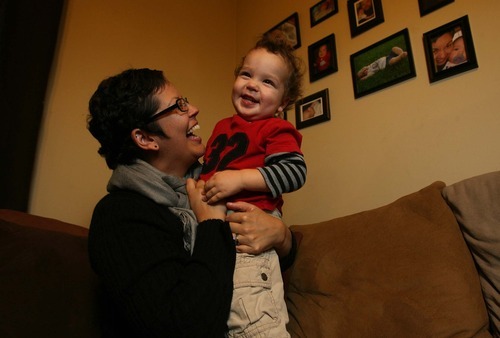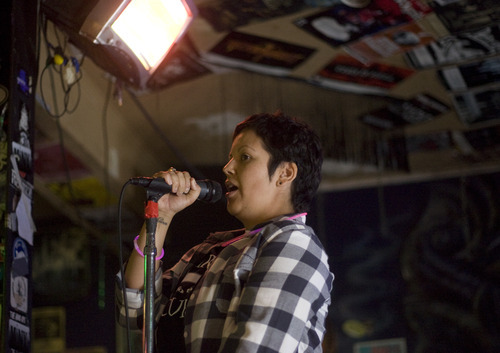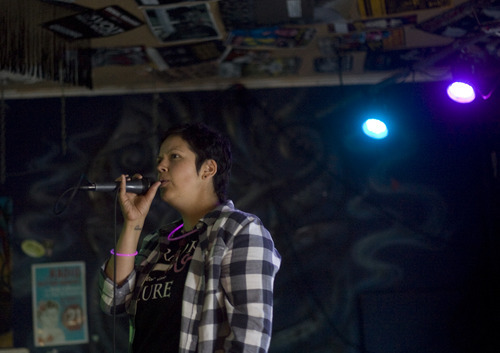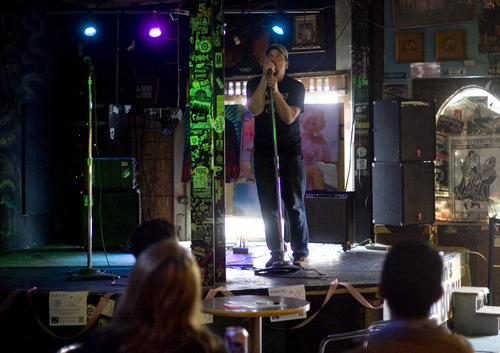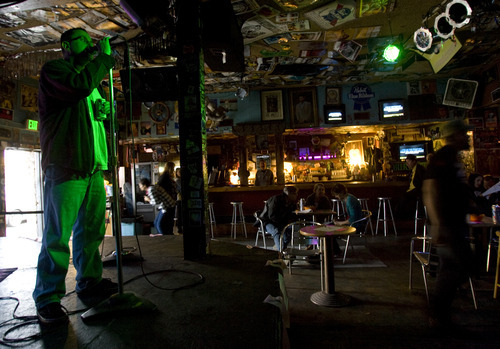This is an archived article that was published on sltrib.com in 2012, and information in the article may be outdated. It is provided only for personal research purposes and may not be reprinted.
When her baby was 4 months old, all fat rolls and curls, Beverly Brehl felt a lump in her right breast while she was nursing him.
She made an appointment the next day to have it checked and was assured it was probably a blocked milk duct.
When it wasn't, and a later biopsy showed it was breast cancer, a surgeon removed the tumor. Brehl and her family rejoiced that it hadn't spread to her lymph nodes.
October is breast cancer awareness month, when pink ribbons decorate everything from NFL football fields to perfumes and soup cans to celebrate prevention and cures and survivors.
But this isn't a story about how early detection and quick action saved a life. It's about the lesser known but scarier side of breast cancer, the one that critics feel gets ignored during what some derisively call Pinktober.
In 2011, at age 33, Brehl learned she had an aggressive form of breast cancer: Triple negative. That means it lacks the receptors known to fuel most breast cancers: estrogen, progesterone and human epidermal growth factor receptor 2. Since most treatments target those receptors, Brehl couldn't take advantage of the most successful options.
Then more bad news: The cancer had traveled to her pelvis, skull, rib cage and, most dangerously, her liver.
She had worked hard to earn her doctorate, got married, became an assistant professor in family and consumer studies at the University of Utah, had the baby she always wanted, and now she had stage IV cancer. It was incurable.
—
Questioning 'Pinktober' consumerism • The pink-themed messages hammer early detection — for women to get a mammogram starting at age 40 — and stress that cancer detected early is almost certainly curable.
But that doesn't ring true for some men and women. According to the Metastatic Breast Cancer Network, 155,000 women and men in the United States have metastatic breast cancer, or cancer that spreads, and some 40,000 die each year. Up to 30 percent of women who survive early-stage breast cancer will eventually find it in their lungs, brain, liver or bones. Some are diagnosed with metastatic cancer from the start.
These women feel ignored, according to the network. Women critique Pinktober in posts on its website, arguing the month focuses on the ribbon and not women with the disease.
"You don't hear about the 35-year-olds who have metastatic breast cancer," agrees Brehl. "You hear about the grandmother who found it early and she's going to be OK. … Those women are important, but they're not the only stories that are out there."
Groups have challenged the point of pink-label consumerism, questioning how much money spent on products ends up helping women and noting some contain chemicals linked to cancer.
Brehl's doctor told her the cancer probably developed when she was about 30, too young to need a mammogram. It went undetected during routine physical exams. "We detected it as soon as we could," Brehl said, "and it's already incurable."
She supports groups, such as Susan G. Komen for the Cure, that promote early detection and walked in the Komen 5K last year. But money spent on pink products could be better spent, she said. She recalls receiving a Ford-sponsored goody bag at a "survivor" luncheon and wondering, "Couldn't you have donated that money to research?"
—
Preparing her son • On average, women live 28 months after a diagnosis of incurable breast cancer, Brehl said.
She's determined to see her almost-2-year-old son, Jack, graduate from college, and she's willing to try experimental treatments to get there.
After standard chemotherapy last year, she appeared cancer-free until June, when a scan revealed three spots on her liver. Two of the spots disappeared after more chemo, but the third grew larger.
This month, Brehl was treated with selective internal radiation therapy, normally used to treat liver cancer. Microscopic radioactive spheres were sent to her tumor through the liver artery supplying its growth, making her literally radioactive.
That forced Brehl to stay away from her son for days, longer than they've ever been apart.
"But maybe it means I can be with him a couple more months, or a couple more years," she said, "or, God willing, several more years."
Since she also had to limit her exposure to adults, she and her sister headed to Moab — home of radioactive uranium mill tailings. "I thought it would be funny to be in the Utah desert while I'm radioactive," she said with a laugh.
She'll find out in a month if the treatment shrinks or, hopefully, obliterates the tumor. But she's also making arrangements for when she's gone.
She knows Jack won't understand the permanence of death until age 7 or 8. If she dies this year, he won't know his mother.
So she takes pictures of herself with her son every day. She writes in two journals: One chronicles his milestones and what they do together. The other is where she shares advice she hopes to give in person: what to do if he gets bullied, to remember his mother loves him.
She's given assignments to her friends and family. Her sister will tell him about her family and what she was like growing up. A nurse friend with older sons will talk to Jack about sex. Her social worker — who helps Brehl get out her anger and fear so she can be more normal at home, and who shares advice on what other young mothers have done to help their kids cope with loss — has a job, too.
"You get to tell him how hard I fought," Brehl recalls telling her. "And you get to tell him how many other kids lose their mommies and what they do to help get through it."
—
Karaoke against cancer • On Saturday, on Metastatic Breast Cancer Awareness Day, Brehl took the stage at Burt's Tiki Lounge in Salt Lake City for her Karaoke for the Cure fundraiser. She met her husband, Jeremy Sundeaus, during karaoke nights at the lounge, where he works.
The money raised will go to the Huntsman Cancer Foundation.
"I don't need another pink ribbon. I don't need another bottle with a pink ribbon on it," Brehl said. "I need a cure."
The money will likely find its way to Brehl's doctor, Saundra Buys, medical director of Huntsman's High Risk Breast Cancer Clinic.
Research dollars are tight, Buys said in an interview, and more work needs to be done on the basic mechanisms of cancer — how it spreads, how to interfere with that process, how to predict the cancers that will travel.
The pink campaigns' emphasis on early detection and survival can be difficult for women with advanced cancer to stomach, she said.
"Some people really presume if you don't have early [stage] breast cancer, you must have done something wrong. Not every cancer is detectable early," Buys said. "Bad things happen to really terrific people."
Brehl choked up as she told a small lounge audience the grim statistics about metastatic breast cancer. But she quickly recovered and said, "Tonight is about fun!"
She belted out AC/DC's "Highway to Hell." She tapped her feet, shook her head and played an air guitar.
"People have said to me, 'Oh, you're so strong,' " she said earlier. "Well, what's the point, what am I fighting for if I'm going to be constantly anxious and depressed? We all have to live the life that we have." —
How to help
Visit here to donate to breast cancer research through Beverly Brehl's fundraising page. —
Tweeting Pinktober
On Twitter, look for the hashtag #pinknausea or #pinkwashing for comments about the commercialization of Breast Cancer Awareness Month.


